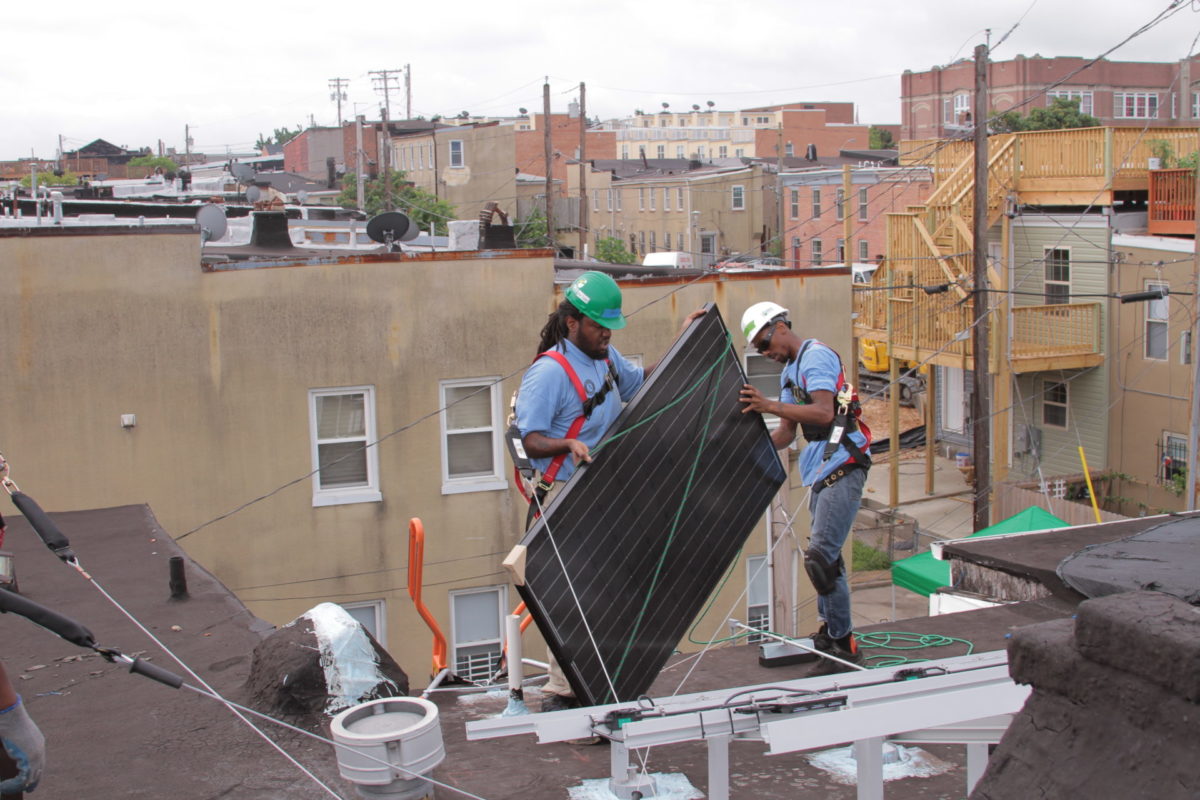
Communities that have been historically marginalized, underserved, and overburdened by pollution have long fought to get the attention and funding they’re due. President Biden’s Justice40 Initiative, which directs the government to ensure 40 percent of all benefits from investments in climate and clean energy go to disadvantaged communities, promises to be a step in the right direction.
For many chronically under-resourced communities, exposure to high levels of toxic pollution is a hazard of daily life. Discriminatory policies like redlining and disenfranchisement have left low-income and historically marganilized communities to suffer the consequences of pollution from fossil-fuel production and refinement facilities, such as oil wells and refineries, natural gas facilities, and power plants that are more frequently permitted in their backyards. A recent study published in Nature Communications found that, regardless of income, communities of color will be more impacted by rising temperatures than white communities due to the heat island effect, which results when concrete and asphalt in cities soak up more heat. Dwindling tree cover in these same neighborhoods worsen the effect.

“Discrimination, centuries of neglect, entrenched racial injustice, and the very real consequences of climate change in the form of natural disasters and extreme weather events, have left millions of low-income, frontline, and Black, Indigenous, and People of color (BIPOC) communities hurting” says Adrianna Quintero, Senior Director of Diversity, Equity, and Inclusion at Energy Foundation. “The historic impact of President Biden’s Justice40 commitment could mark an important turning point in the long fight for justice.”
This initiative aims to begin to redress the high levels of pollution, chronic disinvestment, and lack of access to capital in communities of color and low-income areas. Justice40 will require a shift in the way the federal government and agencies operate to correct persistent injustice by mobilizing substantial shifts in investments focusing more deeply in legacy pollution cleanup, pollution-free energy and transportation, workforce development, quality and affordable housing, and critical clean water infrastructure in communities that need it the most.
Environmental justice and frontline communities note that Justice40 is the floor—not the ceiling—for lifting up communities.
Amanda Aguirre, Co-Founder of Rooted & Reimagined Strategies and a federal strategy adviser to Energy Foundation, agrees: “A culture of shared decision-making between communities and government is what’s needed,” says Aguirre. “I believe that’s really a central tenet of environmental justice. How something is done is as important as what is being done and why.”
These principles are central to how Energy Foundation is approaching work around Justice40, funding frontline and environmental justice advocates to work alongside governments to ensure decision-makers and agencies design programs and allocate resources (money and otherwise) in a manner that meets the needs of communities.
“Climate philanthropy, and we at Energy Foundation, have a responsibility to be responsive and support groups to achieve not just the 40 percent marker, but also the shared decision-making and accountability that is necessary to achieve change,” says Quintero. “Justice40 is a big, ambitious effort—and implementing it properly will require groups on the ground be funded, and their leadership centered, in order to carry out the work required to engage with local, state, and regulatory agencies to make sure the money goes where it needs to go.”
Importantly, the Justice40 initiative is intended to be applied to a broader set of investments than we have previously seen evaluated through the lens of environmental justice. Investments could include investments the government makes in clean energy and climate—even those that are internal to the U.S. government. For example, at the U.S. Department of Energy, there are existing programs within labs where 40 percent of that funded work should benefit communities.
Aguirre, adds that, “By making these changes, the administration can advance progress toward addressing the widening racial wealth and health gaps; ensuring access to affordable housing, energy, and transportation; and protecting the fundamental right of every person to breathe clean air, drink clean water, and live in a healthy, safe, and prosperous community.”
If implemented effectively and deliberately, Justice40 can begin to accelerate long-overdue progress toward environmental, racial, and economic justice. In addition to achieving the Justice40 goal, the Biden administration must act immediately to integrate environmental justice into the development of all national climate policies to improve the health, safety, and well-being of all people.
“What I am curious about is the short and long-term impact that Justice40 eventually will have on state-to-regional policies and investments,” said Aguirre. “The importance of federal and state connectivity is central to the success of programs like this in creating the societal change it intends. Grants made by Energy Foundation and other philanthropists at the state and regional levels will be critical to uplifting and centering historically under-represented and under-funded groups to ensure they are driving the change needed in their own communities.”

